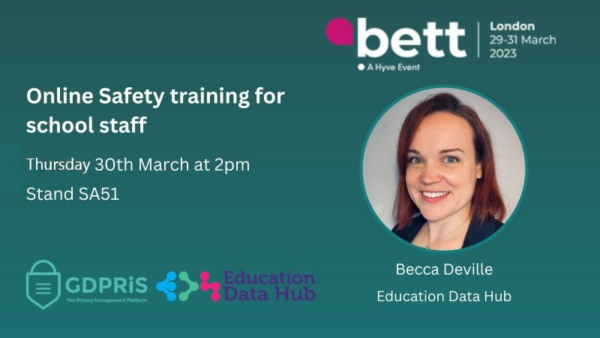Online Safety – a new normal
 Online Safety is not just a computing or IT issue in schools… it links directly with safeguarding, and schools need a range of robust safeguarding policies in place to demonstrate this.
Online Safety is not just a computing or IT issue in schools… it links directly with safeguarding, and schools need a range of robust safeguarding policies in place to demonstrate this.
On the 1st September 2022, new content was added to the Keeping Children Safe in Education statutory guidance with the new section covering online safety, remote learning, information security, cyber-crime, and reviewing online safety provision. The word safeguarding now appears 402 times in the KCSIE, and the word online appears 156 times.
In this digital age, children are users of tech and the internet from a very young age, and I think it’s safe to say that these young generations are the most digitally savvy we have ever had.
We all need to understand just how accessible and engaging the internet is to our young people today. We have to get into their mindset. It’s easy as adults to just accept that our children might ‘always be on their phone’, or ‘always looking at a screen’, without us thinking about why? Why aren’t they out meeting friends and playing like we did when we were their age? Well, for a start, we probably didn’t have the internet as an alternative!
Persuasive design uses insights from psychology to make products more engaging, and is used extensively in games and social media apps to make sure that users spend as much time as possible on those sites. Once we understand that psychological tactics such as infinite scrolling, auto-play, or ellipses are utilised to keep people engaged, it easier to understand how our children might get lost in it.
So, what do your children, your pupils, love doing online? What services and devices do they use? Do children use the internet in a different way to adults? Who do they chat to? What do they see? What do they share? The online world can be exciting and inspiring. Young people can create their own content, play games or watch videos, however, it is important to manage and minimise the associated risks, which can happen anywhere, to anyone, at any time.
Online Safety and Safeguarding don’t have to be topics for Computing or PSHE or RSE. All staff can play a crucial role in preventative education and find a way to embed messages across the curriculum. Create a safe space and let pupils know that you will not be angry or upset, but would like to support them in using the internet safely and responsibly. Use neutral language and avoid being critical of pupils’ online behaviour. Focus on key risks and the support available, not young peoples’ choices.
For pointers on how to start a conversation, Internet Matters have created a helpful guide to assist in creating an environment to make it easy to talk.
Embedding Online Safety across the curriculum is best achieved through a whole-school approach, with effective policies and reporting routes. As well as supporting young people to stay safe online, school staff also need to protect their own online reputation.
Our Online Safety training webinar has been produced to help school leaders fulfil statutory requirements and has been created with the updated KCSIE and Ofsted in mind. Please get in touch at [email protected] to enquire about our whole-school staff Online Safety training.
Education Data Hub work with Education Providers across the UK. Our team members are all former school staff who understand the pressures of a school environment, meaning our support is mindful of the school day/calendar.
Follow us on Linked In